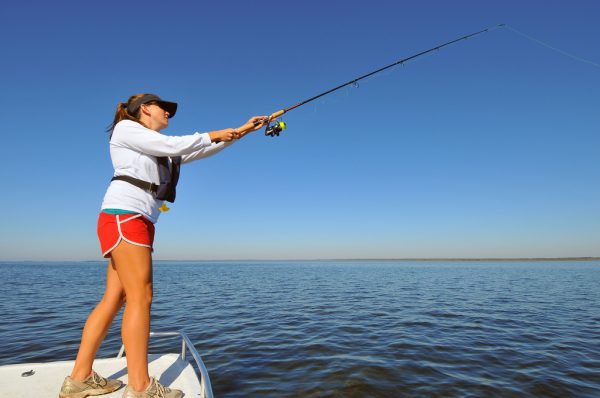Saltwater is the enemy when it comes to fishing tackle, but properly cleaning and caring for your reel and rod after each outing will help protect your investment and keep your gear in top condition.
In order to reduce serious damage to your saltwater fishing gear, it is crucial to follow these five steps.
A GOOD RINSE
After every use, it is important to rinse your reel and rod with fresh, clean water to remove salt, dirt and other debris that has accumulated on your reel. It is critical that reels not be sprayed with water and it is best not to completely submerge your reel in water.
The force of spraying can result in more damage than not doing anything at all, because it can push salt and sand into the working mechanisms of your reel. Submerging your reel can trap water in areas that are tough to dry.
The best way to wash your reel is to simply rinse it, gently, to remove salt and debris. Remove the spool and rinse it too. Once rinsed, dry the reel thoroughly with a clean rag. Once your reel is rinsed, you should rinse all sections of your rod as well, especially the guides and seat.
RELATED: How to Maintain Your Fishing Reel
LUBRICATION
Once your reel is rinsed and dry, the next step is to lightly lubricate all parts of the reel, including the gears, handle and other working mechanisms. Open and close the drag and crank the handle to best distribute the lubrication within the mechanisms. This will help keep your reel operating properly.
Next, spray lubricant on a cloth and rub down the entire reel to help protect it from corrosion. You should also lubricate the metal portions of your rod, especially the working parts on the reel seat.
TACKLE STORAGE
When not in use, it is important to stow your rod and reel in a safe place in the boat. Keeping them in the gunwale or clunking around on the deck, while you are driving from one point to the next, unnecessarily exposes them to saltwater and other possible damage. Take the time to stow your tackle securely, in a dry place, and it is much more likely to stay in top condition, even after years of use.
REMEMBER THE LINE
Not only does line take a beating from exposure to saltwater, it also undergoes incredible stress from the size of fish and length of battles associated with saltwater fishing. To make sure your line is in the best possible shape, it is important to change it often. Some anglers go as far as switching their line after every outing. This may be a bit extreme, but it goes to show that line should be switched frequently to ensure you are not fishing with worn or damaged line that could cost you a fish.
TUNE-UP
At least once a year, you should bring your saltwater reels to a professional for a complete tune-up. This will help ensure that you get many years of quality performance from your reels. It is also good way to identify any damaged parts, and prevent more serious problems that could occur.
Photo credit: Flickr








